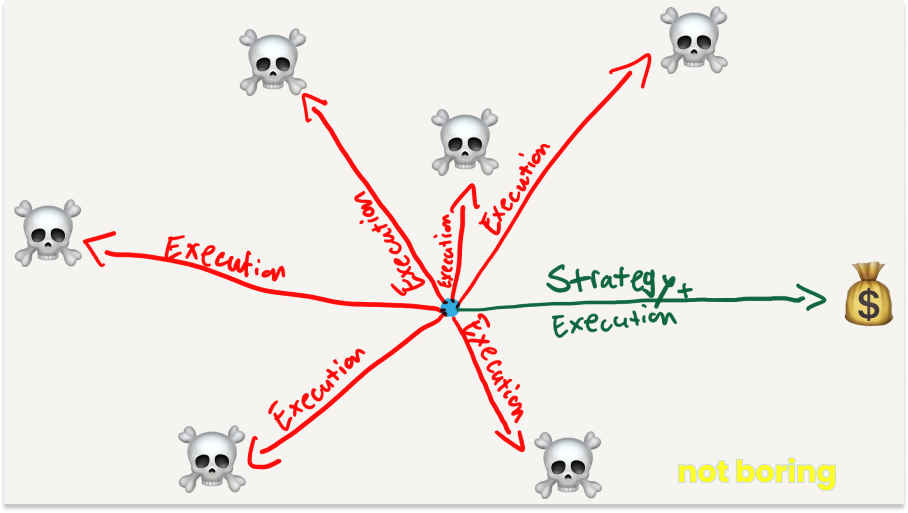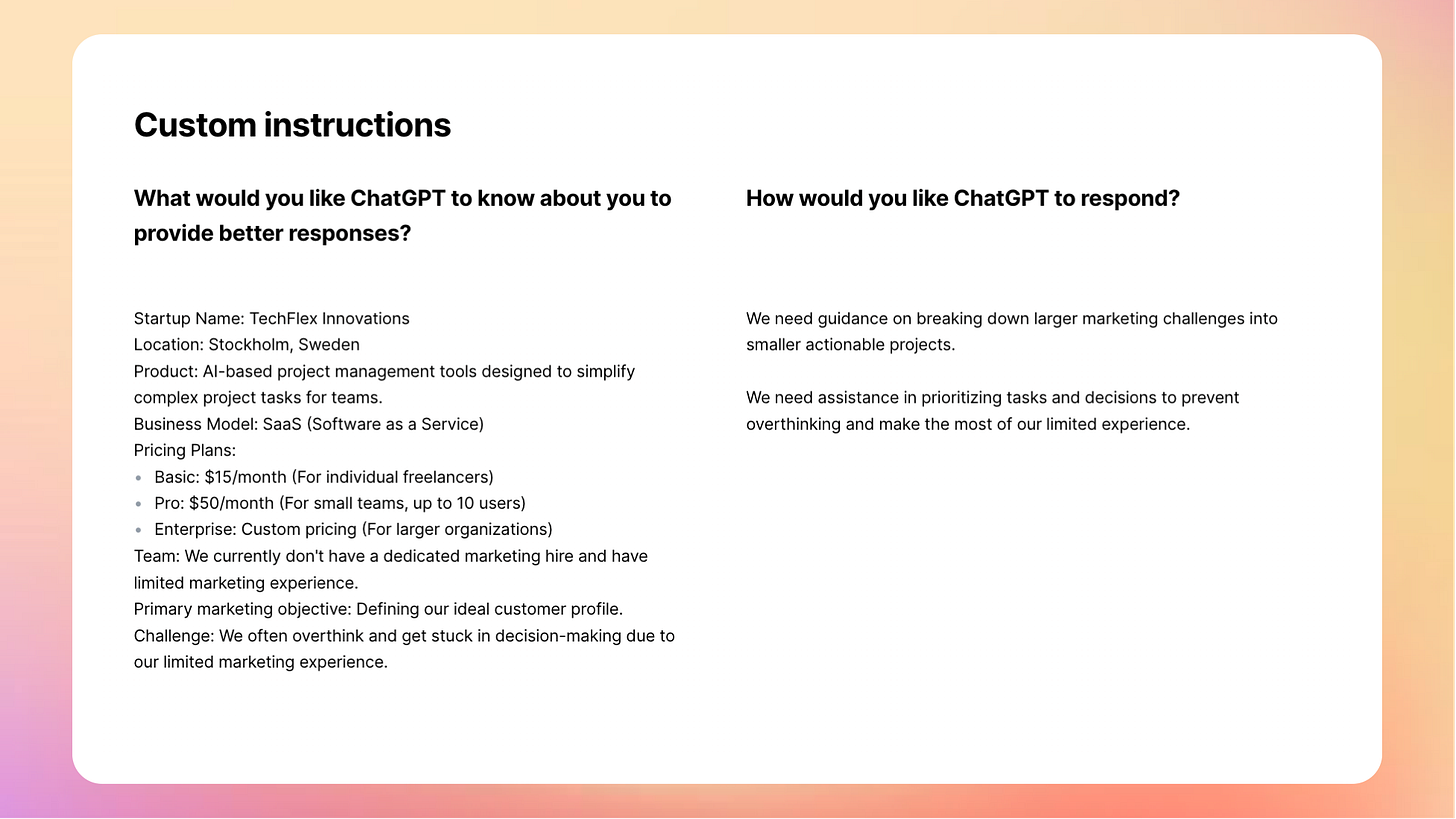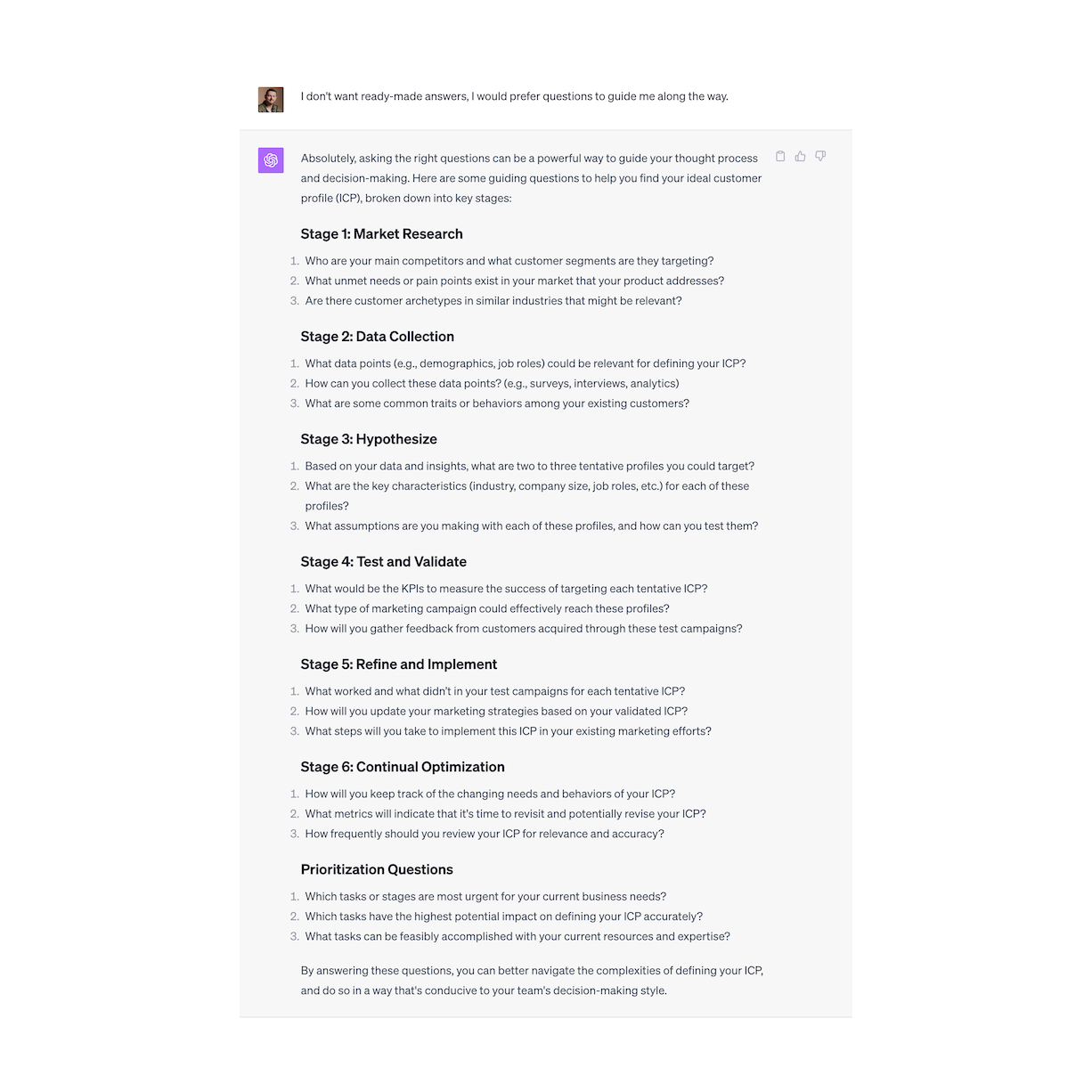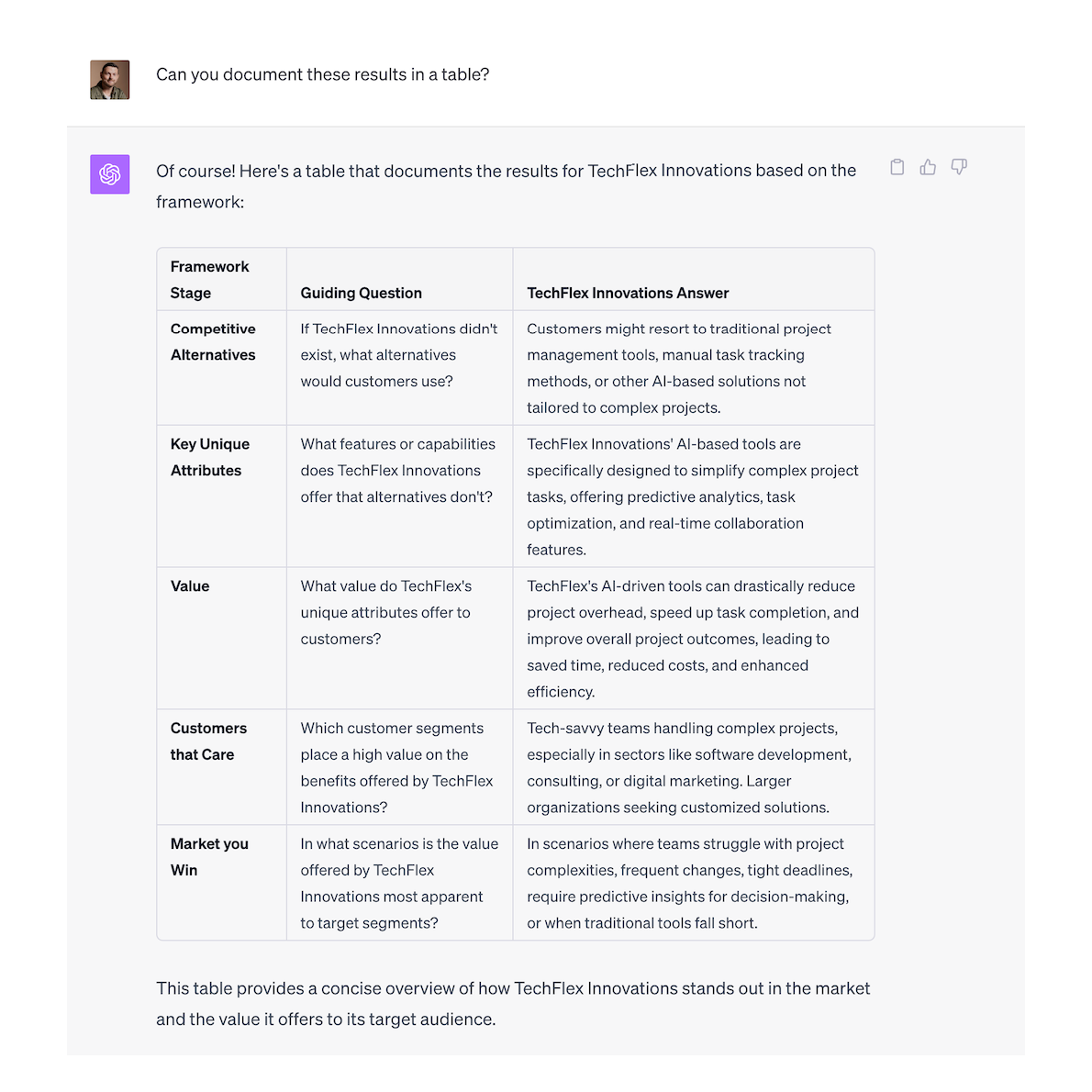AI Tools Blur the Line Between Marketing Strategy and Tactics for Startups
And How to Use ChatGPT to Make Better Marketing Decisions
If AI were a basketball player, it would be Victor Wembanyama: massive potential but also huge expectations. ChatGPT may only turn one on November 30, but it feels like we've talked about it forever.
In 2023, tech investors mainly put their money into AI-related startups.
Google, Notion, Hubspot, Miro, Canva...most tech products have added AI features.
Some fear the consequences of AI, while others are (techno) optimistic about its ability to save the world.
Now that these tools are everywhere, do they actually make it easier to market your startup? Or are they just another potential distraction for founders?
Feels like magic
Using AI tools for the first time feels like magic.
Tasks that used to take hours can now be done in minutes.
On paper, AI tools are perfect for resource-constrained startups.
Need to create content for a landing page, blog, or social post? Ask ChatGPT or Jasper. Why not add a unique illustration to it with DALL-E 3, Midjourney, or Canvas Magic Studio?
Need to create an onboarding series for your product? Ask ChatGPT to create a script and deliver it by an AI avatar from Synthesia or HeyGen.
Need to summarize or visualize data? Just drop it into Advanced Data Analysis (prev. Code Interpreter), and it will highlight the most important findings for you.
Abracadabra, there is an AI tool for all your marketing needs.
With that in mind, it may be tempting to let AI tools run your marketing on autopilot and postpone or even avoid altogether your first marketing hire.
Hold on!
Where are the success stories?
Given that AI tools have been mainstream for about a year, we should have heard plenty of success stories from startups using them to go to market successfully.
I recently shared this question on LinkedIn.
AI will hopefully help me create better memes in the future btw ;)
Despite nearly 10,000 views, no one strongly disagreed or provided specific examples. More established companies have successfully used AI in their marketing strategy, such as LinkedIn. But what about startups?
Blurred lines
A common pitfall for startups is to confuse strategy with tactics.
I often share this image that perfectly illustrates this issue.
My hypothesis is that AI tools, by making it easier than ever to create marketing materials, blur the line between strategy and tactics even further. As a result, startups may be putting the cart before the horse.
Packy McCormick warns about the dangers of mixing up strategy and tactics for startups in his article "In Defense of Strategy."
Execution without strategy is wasteful and tragic. Just as “Companies that have the best products, most talented people, and fastest growth are precisely the ones for which moats are most important,” companies that are the best at execution are precisely the ones for which strategy is most important. They’re the only ones that have a shot. The better you are at execution, the faster you can run in any direction. A good strategy helps you run fast in the right direction.

So, yes, AI tools can speed up execution, but without a solid strategy, they're just going to help you hit the wall much faster.
A better assistant than a creator
I couldn't agree more with Hiten's tweet here.
Initially, like everyone else, what impressed me most about AI tools was their ability to create content. But as impressive as that is, the content is often mediocre.
But as a solopreneur who doesn't always have the luxury of having someone at my side, the ability to bounce ideas off AI can be super valuable.
Starting a business can be a lonely and psychologically challenging experience, even with co-founders. This is where I believe AI tools can add significant value to startups.
A compass, not a magic wand
Let's go back to the illustration shared above (the one with the skulls) of the different paths a startup can take. Founders with limited marketing experience can usually fall into two traps: overconfidence, also known as the Dunning-Kruger effect, which leads them too far down the wrong path, or analysis paralysis, which leaves them too indecisive to start at all.
Startup teams need to think of AI tools not as a magic wand that can teleport them from point A to point B (their strategic goal), be it their first users or achieving product-market fit, but rather as a compass that can guide them along the way.
But how? Let's take a look at some concrete examples with chatGPT.
How to use ChatGPT to make better marketing decisions
Note: This section is based on ChatGPT Plus features as of October 2023, but given the pace of updates, it may soon be outdated.
Custom instructions
The first step is to provide more context about your business and challenges in the custom instructions to avoid generic results. To learn more about custom instructions, I highly recommend this guide from Dan Shipper on the topic.
To show you the difference, here's what ChatGPT recommends when asked how to find your Ideal Customer Profile (ICP), a common marketing challenge for startups, without any custom instructions.
Now, I've added these custom instructions based on a fictional startup example.
And here are the results I get for the same question, already much better.
Questions>Answers
If I've learned anything from my years advising startups, it's that questions, not ready-made answers, can unlock things. I wrote more about it here.
The problem with ChatGPT is that it has an answer for everything. Sometimes, it can feel like you're in front of a slot machine. Maybe if you try one more time, you'll hit the jackpot... It can quickly become time-consuming and counterproductive.
Going back to our example, let's explicitly ask ChatGPT not to use ready-made answers but to respond with questions to guide me.
Wow! We've gone from the equivalent of a generic blog post to an email with concrete recommendations, similar to what you might get from one of your advisors.
Frameworks
It goes without saying that frameworks are essential tools for shaping a strategy.
Now that ChatGPT has added the ability to upload images and restored Bing access, you can use the frameworks of your choice to help you think through your strategy, whether from a blog article, a book, or even some drawings of yours.
Back to our example, one of my favorite frameworks for defining your ICP is this positioning framework by April Dunford.
Let's see what happens when we ask ChatGPT to use it.
Pretty impressive, right? Of course, the results would have been even better if the market research questions suggested earlier had been answered.
You can now turn this into a table and have the material ready for a presentation.
I don't know about you, but if I were a founder who wasn't sure where to start or how to define my ICP, this could point me in the right direction or at least help me get started.
Not a shortcut
As impressive as AI tools are at simplifying complex tasks, they're not a shortcut to making your startup stand out. A collection of tactics isn't a marketing strategy, and it won't give you a competitive advantage.
The opportunity lies in recognizing these tools as valuable companions that can help you navigate the strategic decisions you face every day as an entrepreneur.
I suggest you try the above and let me know how it goes. I'd be happy to review and discuss the results with you in a call or DM.
Now, you may ask yourself if there is a future for marketing advisors like me. I will probably share my thoughts on this in another article :)
Until next time,
PS: Following my last article on product-market fit, I was invited to discuss the topic on the Datadrivet podcast. You can listen to the full episode on Spotify or wherever you get your podcasts.












